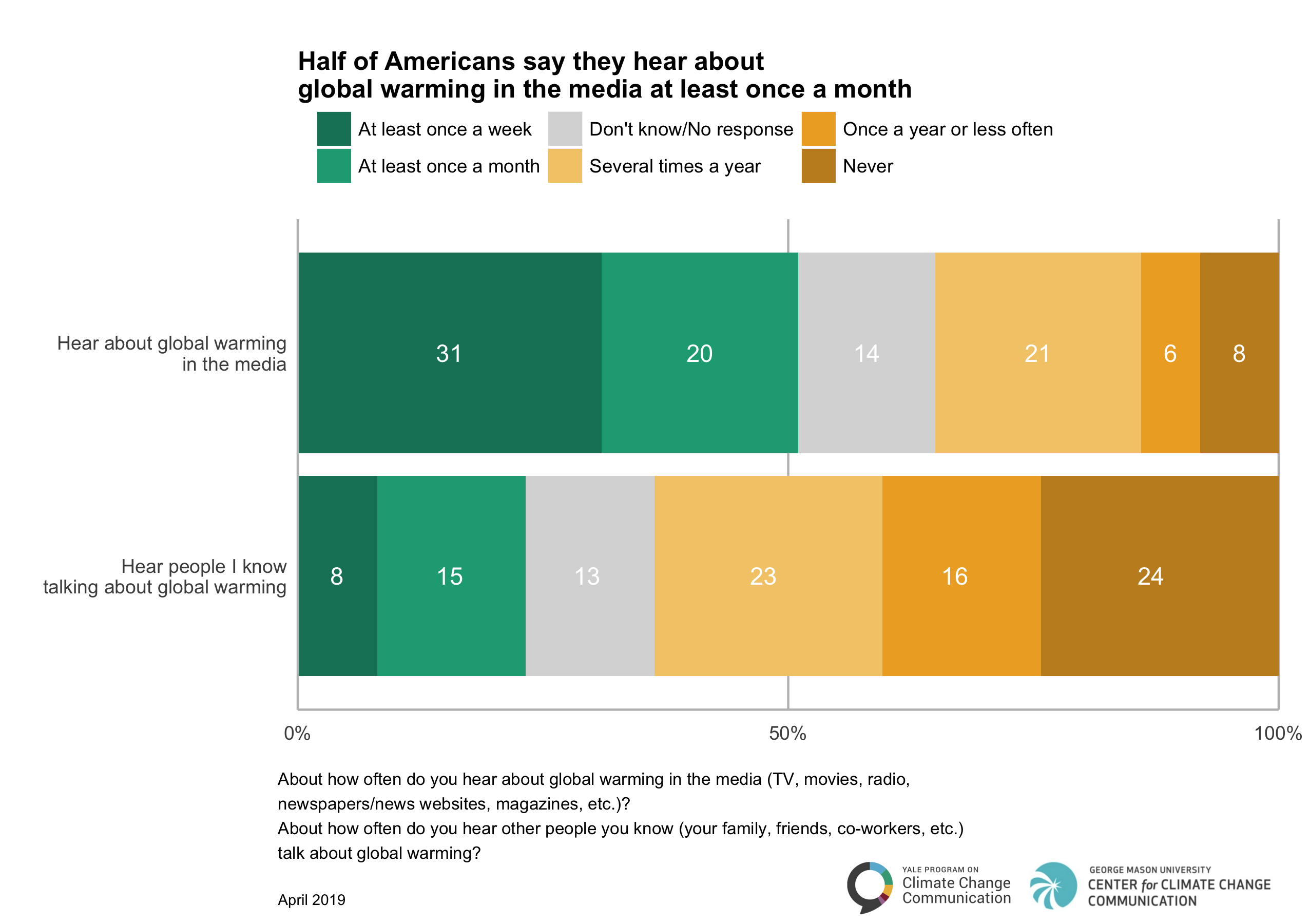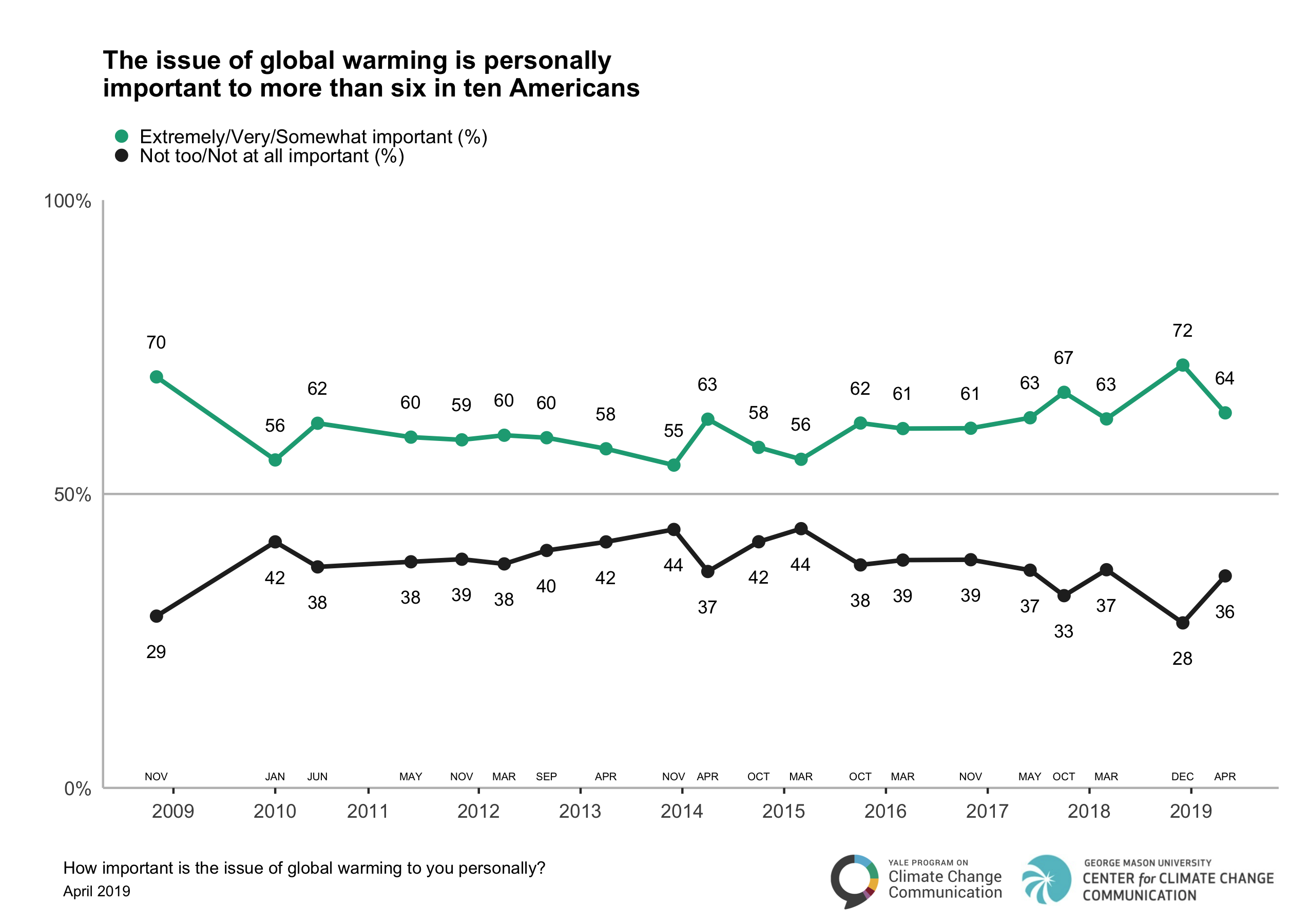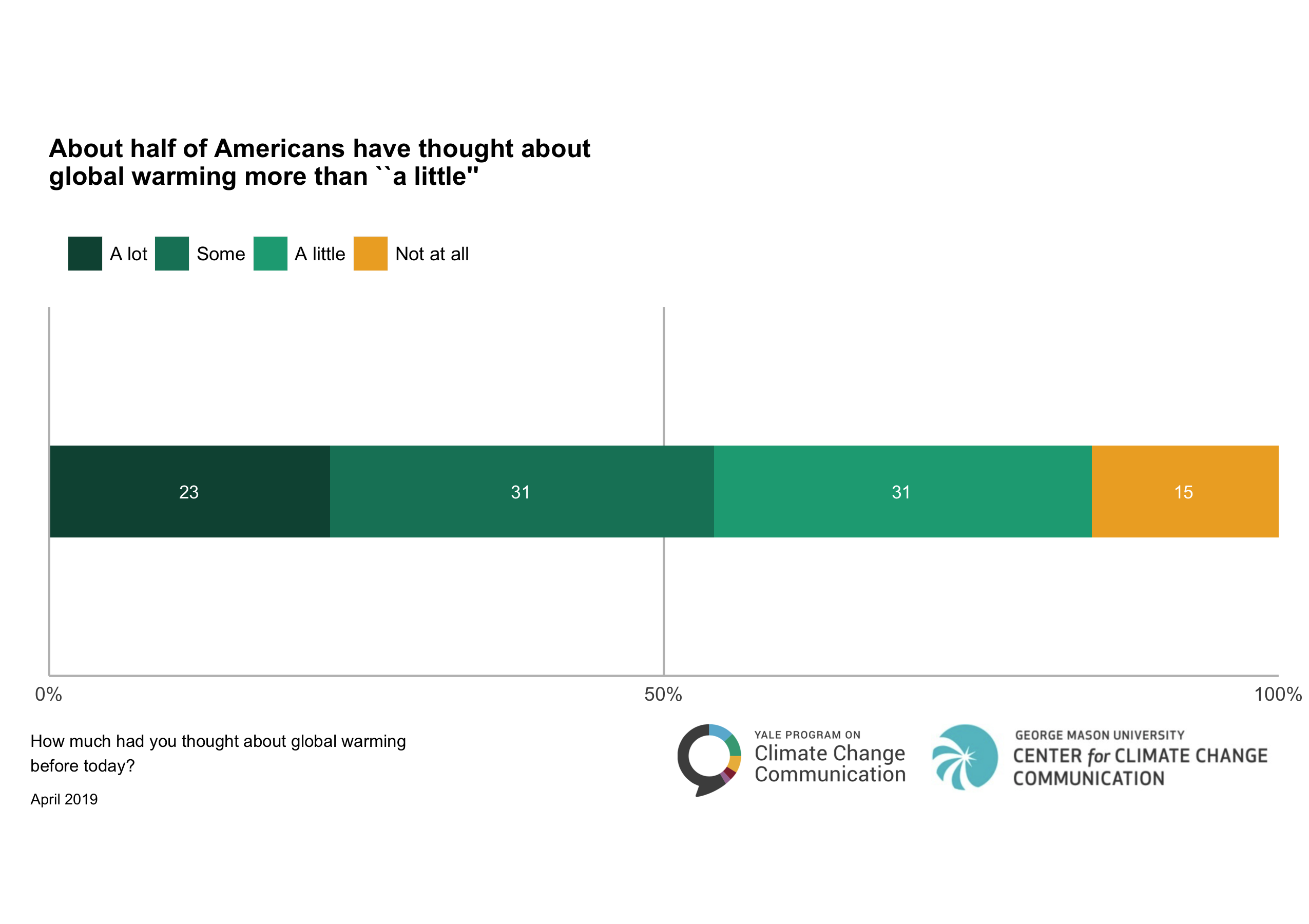Report · Jun 27, 2019
Climate Change in the American Mind: April 2019
By Anthony Leiserowitz, Edward Maibach, Seth Rosenthal, John Kotcher, Parrish Bergquist, Matthew Ballew, Matthew Goldberg and Abel Gustafson
Filed under: Beliefs & Attitudes
5. Personal and Social Engagement with Global Warming
5.1 Most Americans “rarely” or “never” discuss global warming with family and friends.
About six in ten Americans (63%) say they “rarely” or “never” discuss global warming with family and friends, while 37% say they do so “occasionally” or “often.”
5.2 Half of Americans hear about global warming in the media at least once a month; fewer hear people they know talking about it at least once a month.
About half of Americans (51%) say they hear about global warming in the media once a month or more frequently, an increase of eight percentage points since our March 2018 survey. About one in four Americans (27%) say they hear about it in the media only several times a year or less, and 8% say they never hear about it.
Only about one in four Americans (23%) say they hear people they know talking about global warming once a month or more. In contrast, 39% say they hear people they know talking about it only several times a year or less, and about one in four (24%) say they never hear people they know talk about global warming.
5.3 The issue of global warming is personally important to more than six in ten Americans.
More than six in ten Americans (64%) say the issue of global warming is either “extremely” (12%), “very” (18%), or “somewhat” (33%) important to them personally. About one in three (36%) say global warming is either “not too” (19%) or “not at all” (17%) personally important.
5.4 Fewer than half of Americans perceive social norms for taking action on global warming.
Social science research has shown that two types of social norms can have a powerful influence on people’s behavior: injunctive norms – the belief that friends and family expect you to behave in a given way; and descriptive norms – the belief that friends and family are themselves behaving in that way.Ballew, M. T., Goldberg, M. H., Rosenthal, S. A., Cutler, M. J., & Leiserowitz, A. (2019). Climate change activism among Latino and White Americans. Frontiers in Communication, 3(58), 1-15. https://www.frontiersin.org/articles/10.3389/fcomm.2018.00058/full, Cialdini, R. B. (2003). Crafting normative messages to protect the environment. Current Directions in Psychological Science, 12(4), 105-109. https://journals.sagepub.com/doi/10.1111/1467-8721.01242, Doherty, K. L., & Webler, T. N. (2016). Social norms and efficacy beliefs drive the Alarmed segment’s public-sphere climate actions. Nature Climate Change, 6, 879-884. https://www.nature.com/articles/nclimate3025, Schultz, P. W., Nolan, J. M., Cialdini, R. B., Goldstein, N. J., & Griskevicius, V. (2007). The constructive, destructive, and reconstructive power of social norms. Psychological Science, 18(5), 429-434. https://journals.sagepub.com/doi/10.1111/j.1467-9280.2007.01917.x
Fewer than half of Americans (45%) perceive an injunctive norm, saying it is either “extremely” (5%), “very” (14%), or “moderately” important (26%) to their family and friends that they take action to reduce global warming. About four in ten Americans (41%) perceive a descriptive norm, saying their family and friends make either “a great deal of effort” (3%), “a lot of effort” (8%), or “a moderate amount of effort” (30%) to reduce global warming.
5.5 About half of Americans have thought about global warming more than “a little.”
About half of Americans say they have thought about global warming before today either “a lot” (23%) or “some” (31%). Fewer say they have thought about global warming just “a little” (31%) or “not at all”(15%).




